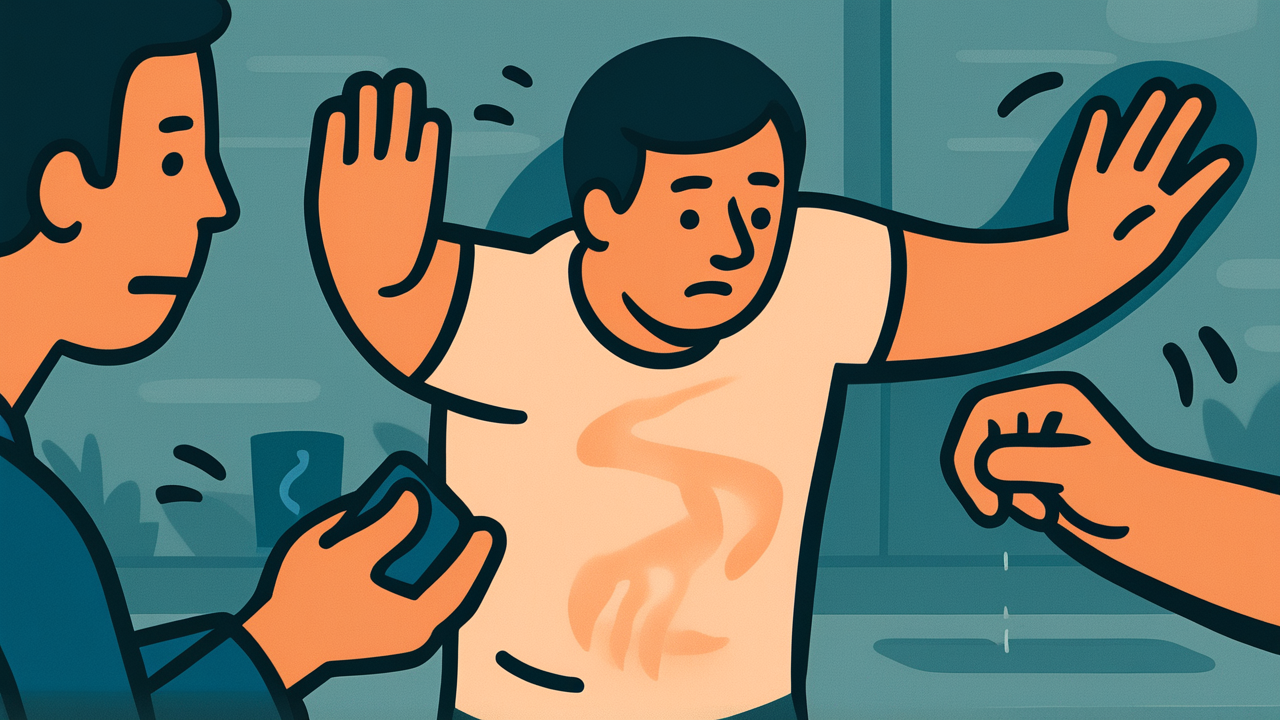How to Read “我が身を抓って人の痛さを知れ”
Waga mi wo tsunette hito no itasa wo shire
Meaning of “我が身を抓って人の痛さを知れ”
This proverb means that in order to understand others’ pain and suffering, you should first try to have a similar experience yourself.
By pinching your own body and feeling the pain, you can imagine what kind of pain others are feeling and become able to empathize with them. This applies not only to physical pain but also to emotional pain and difficult situations. It is a teaching for cultivating a compassionate heart that considers things from the other person’s perspective.
This proverb is used when someone is acting without understanding others’ feelings, or in situations where one should be more considerate of others. Also, when you yourself want to understand someone else’s feelings, remembering this expression can help you develop deeper empathy. Even today, it continues to be cherished by many people as an expression of the most important quality in human relationships: “a heart that considers others’ feelings.”
Origin and Etymology
The origin of this proverb lies in ancient teachings that expressed human empathy through physical experience. The act of “pinching” has long been familiar in Japan as the most accessible way to confirm pain.
Similar expressions can be found in Edo period literature, and it is believed to have been used since that time when teaching the importance of understanding others’ feelings. The background to the creation of this expression lies in the uniquely Japanese “culture of perception.” By comparing the compassionate heart that considers things from others’ perspectives to physical pain that everyone can experience, they sought to convey this concept more clearly.
The action of “pinching” is a mild pain that one can control oneself. Through this, the wisdom of our ancestors is embedded, telling us to imagine the pain and suffering that others might be feeling. Particularly during times when the samurai spirit was valued, consideration and compassion for others were regarded as important virtues, and this proverb is presumed to have developed within such a context.
The reason it has been passed down to modern times is that it conveys the universal value of “understanding others’ feelings,” which is fundamental to human relationships, through a simple and memorable expression.
Usage Examples
- Before being harsh with my subordinate, I reminded myself to “Pinch your own body and know person’s pain”
- When a friend is depressed from a breakup, I want to approach them with the spirit of “Pinch your own body and know person’s pain”
Modern Interpretation
In modern society, the meaning of this proverb has become more complex and profound. With the spread of social media and the internet, we have come to connect with many people through screens, but at the same time, it has become more difficult to understand others’ feelings.
In online communication, we cannot see the other person’s facial expressions or hear their tone of voice, so we need to gauge their state of mind from words alone. Precisely because of such situations, the spirit of “Pinch your own body and know person’s pain” becomes even more important. Before sending a message, it is crucial to imagine how you would feel if you received these words.
Moreover, in modern times, understanding diversity is required. In coexisting with people who have different cultural backgrounds and values, the teaching of this proverb takes on new meaning. Using imagination to understand the feelings of people in different positions from ourselves has become even more important.
On the other hand, modern people are caught up in busyness and find it difficult to take time to stop and consider others’ feelings. However, precisely because of this, the attitude shown by this proverb of “stopping once to think from the other person’s perspective” becomes the key to enriching human relationships.
When AI Hears This
In the 1990s, Italian researchers studying monkey brains made an incredible accidental discovery. Just by watching other monkeys’ hand movements, the observing monkeys’ motor neurons were responding in their own brains. These nerve cells, called “mirror neurons,” reproduce others’ actions and emotions within one’s own brain, just like a mirror.
Remarkably, these mirror neurons also respond to pain. When people watch footage of someone else getting an injection, the brain regions related to pain perception in the observers actually become active. In other words, the phenomenon of “feeling real pain yourself when seeing others in pain” has been scientifically proven.
However, Japanese people have been saying “pinch yourself to know another’s pain” for hundreds of years. This perfectly matches modern neuroscience discoveries. People in the Edo period couldn’t have understood how the brain works, yet they accurately grasped the human empathy mechanism.
Even more fascinating, research shows that actually inflicting pain on one’s own body makes mirror neurons work more actively. In other words, the act of “pinching” was scientifically an effective method for enhancing empathy toward others. The intuitive insight of our ancestors is truly astonishing.
Lessons for Today
What this proverb teaches us modern people is that true understanding is born from imagination. When you want to understand someone’s feelings, first think about how you would feel if you were in their position. This small step has the power to greatly change human relationships.
In modern society, we tend to forget to take time to think from others’ perspectives because we’re caught up in busyness. But before sending an email, before posting on social media, please stop for just a moment and imagine “how would the other person feel?” That moment will make your human relationships warmer.
Also, this proverb is not demanding perfect understanding. What’s important is the desire to understand. Even if you can’t completely comprehend, if you have a heart that tries to empathize with others’ pain, that will surely be conveyed to them.
The people around you are probably also carrying some kind of pain or worries. At such times, remember this proverb and exercise gentle imagination. That compassion will surely warm someone’s heart.



Comments